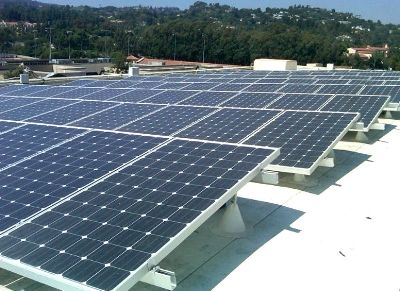
Solar panels on the roof of UCLA's Ackerman Union are one of many examples of what makes the university one of the most sustainable in the nation. The Green Initiative Fund, a student-funded initiative, paid to add the panels to the student union in 2012.
All told, 22 campuses received a first-place ranking with the highest possible score. Among the top campuses were UC Irvine, UC Santa Barbara and UC Santa Cruz. The Princeton Review based the scores on surveys of sustainability-related practices, policies and academic offerings at 832 colleges and universities across the country.
“Our campus has long been committed to sustainability and the environment, both at UCLA and in the community,” said Nurit Katz, the university’s chief sustainability officer. “Student interest has made the environmental science degree one of the fastest-growing majors on campus, and faculty, students and staff are putting research into practice at UCLA. We’re truly a living laboratory, and we’re honored to be recognized as a national leader.”
The Princeton Review lauded the UC campuses in its Green Honor Roll for their efforts to cut energy use, reduce waste, conserve resources and shrink their carbon footprint.
"The schools on our Green Rating Honor Roll demonstrated truly exceptional commitments to sustainability across key issues we looked at, from course offerings and recycling programs to plans for reducing greenhouse gas emissions," said Robert Franek, the Princeton Review's senior vice president and publisher.
The ratings highlighted UCLA’s Institute of the Environment and Sustainability, a hub for green academic activities. The review also noted that the university diverts 69 percent of its waste stream from landfills, uses alternative fuel in 38 percent of its vehicles and has installed more than 600,000 energy-efficient bulbs across campus. Among many other campuswide projects and initiatives, UCLA has also switched from Styrofoam to exclusively biodegradable cups in dining areas, maintains an organic garden and has made sure that all new construction and major renovations meet at least LEED Silver environmental standards.
For more information:




